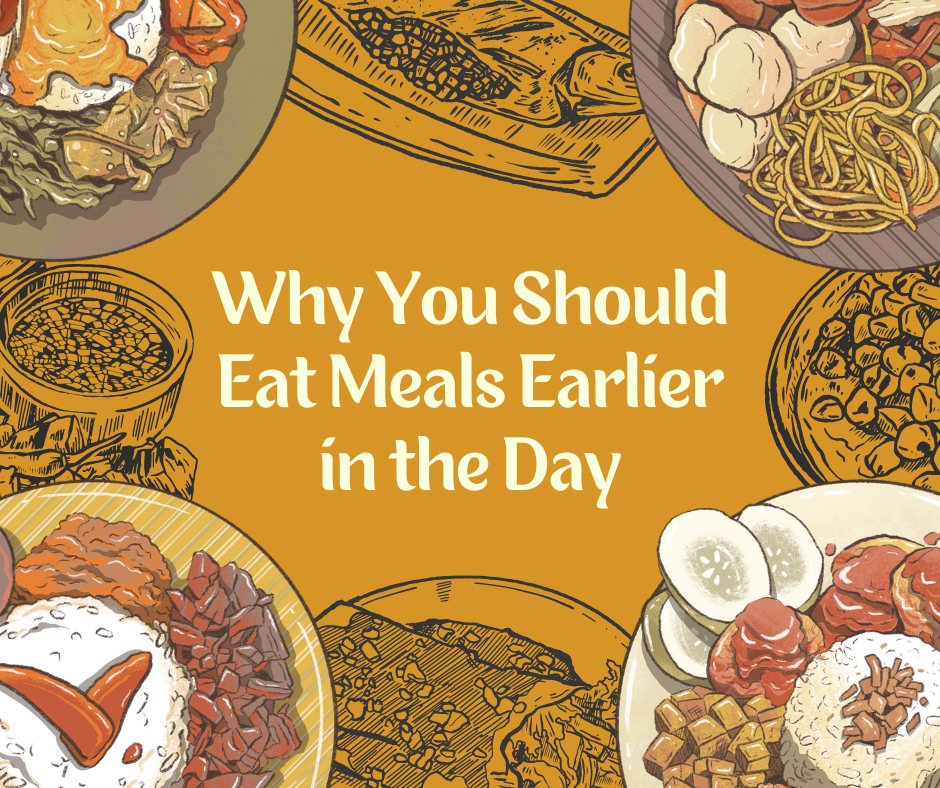Eating healthy and exercising isn’t just difficult because they’re hard to do consistently. They’re also difficult because so many factors affect the results you think you should be seeing. Some people think you should be eating more or fewer carbohydrates, more or less healthy fats, and more or less fiber. Some people think vegetarianism is the way to go while others refuse to villainize eating meat.
What works for others might not work for you, either. You’re just not sure what to believe!
Some people also think that what time you eat matters a lot. Should you eat or skip breakfast? Is intermittent fasting healthy? Am I allowed to have midnight snacks if I’m hungry?
Well, we’re here to finally seal the deal on what time of the day you should be eating in. We’ll be presenting hard, evidence-based facts to show you that time does matter when it comes to having a healthy body. Eat earlier meals to see maximum benefits!
Eating Later Makes Us Crave Unhealthy Food
According to the results of a study by Harvard’s Medical Chronobiology Program of the Brigham and Women’s Hospital Division of Sleep and Circadian Disorders in Boston, eating later in the day made people crave more food. Not only that, but they made people crave food that was starchy and salty like potato chips, burgers, hot dogs, and other foods that are notoriously bad for you in excess. You’ve probably done this before too—there’s something about eating something greasy and salty at the end of a long day that just hits the spot!
Nonetheless, eating too much unhealthy food is bad for us. For one thing, it makes it easier to gain weight (which we’ll expound on in the next section). It also has little to no nutritional value, meaning we get all the calories but without vitamins and minerals to maintain a healthy body.
Lastly, all the salt and fat that we consume is going to take a toll on our kidneys and heart. This will lead to a wealth of diseases that can kill us or at least make our lives harder than they need to be.
Genetics Work Against Us Later in the Day
There are lots of hormones in the human body, and some of them are more active during specific times of the day. For example, melatonin, which controls our sleeping schedule, is more active during the night because it helps us fall asleep.
In the same way, leptin, a hormone that controls fullness or satiety, is more active during the day and less active during the nighttime. So, when we eat meals not earlier in the day, we might struggle to feel full. We eat more than we usually do until the leptin finally kicks in and we feel full. On the other side of the spectrum, we’ve got hormones that promote fat growth. They are more active later in the day, which is a recipe for disaster if you eat a lot for dinner!
Moreover, our body’s metabolism also works at different strengths depending on the time of day. Scientists discovered that people who ate later in the day burned five calories less than people who ate earlier. Keep in mind too that these five calories were burned with no exercise—think of how many calories could be burned with low to high exercises!
What Can I Do About It?
It’s simple. You should consider eating most of your calories earlier during the day. As many of you have probably already heard, “Breakfast is the most important meal of the day!”
Now, breakfasts can be very relative. Not everybody is a morning person, and they don’t do traditional 7 AM breakfasts for a variety of reasons. We might be night owls who prefer waking up in the afternoons. We might have varying schedules that have us working odd hours. Some of us also do night shifts.
Whatever your case is, that’s fine. Breakfast is meant to break your fast after sleeping. So, as long as you’re supplementing your body with lots of healthy food right after you wake up, you’re technically eating earlier in your day.
An Important Note
Of course, if having you eat meals earlier is just impossible for you for whatever reason, don’t let that be an excuse to beat yourself up. At the end of the day, we’re a product of our environment. Some of us just don’t have the privilege to eat whenever science says we should eat. If your eating schedule lines up with science—great! If it doesn’t, that’s okay too. We know you’re trying your hardest to be the best version of yourself you can be.
